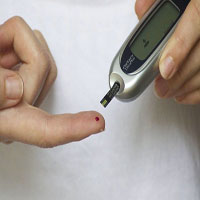Evaluation of antidiabetic activity of aqueous extract of Origanum floribundum Munby leaves in alloxan induced diabetic rats wistar

Submitted: May 26, 2020
Accepted: September 7, 2020
Published: January 14, 2021
Accepted: September 7, 2020
Abstract Views: 631
PDF: 408
Publisher's note
All claims expressed in this article are solely those of the authors and do not necessarily represent those of their affiliated organizations, or those of the publisher, the editors and the reviewers. Any product that may be evaluated in this article or claim that may be made by its manufacturer is not guaranteed or endorsed by the publisher.
All claims expressed in this article are solely those of the authors and do not necessarily represent those of their affiliated organizations, or those of the publisher, the editors and the reviewers. Any product that may be evaluated in this article or claim that may be made by its manufacturer is not guaranteed or endorsed by the publisher.

 https://doi.org/10.4081/jbr.2020.9141
https://doi.org/10.4081/jbr.2020.9141



